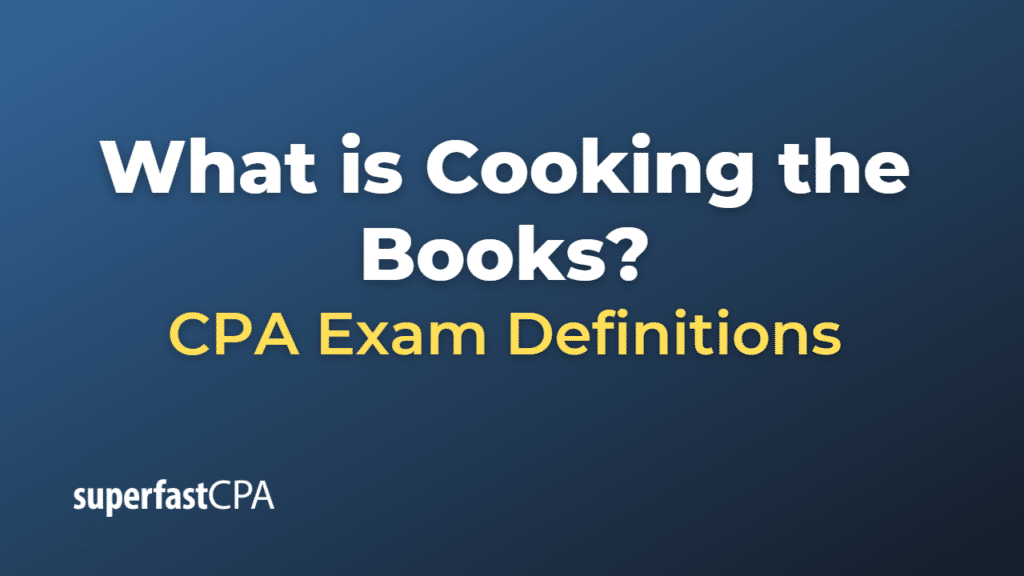Cooking the Books
“Cooking the books” is a colloquial term used to describe fraudulent activities undertaken by a company or its management to manipulate financial statements and present a more favorable financial picture than what actually exists. The goal of cooking the books is typically to mislead investors, regulators, or other stakeholders about the true financial health or performance of a company.
Cooking the books can involve a range of deceptive accounting practices, such as:
- Overstating revenue: A company might record fictitious sales, recognize revenue prematurely, or manipulate the timing of revenue recognition to inflate its top line.
- Understating expenses: Management could delay the recognition of expenses, capitalize costs that should be expensed, or manipulate the depreciation and amortization schedules to make the company appear more profitable.
- Hiding liabilities: A company might use off-balance-sheet entities or complex financial structures to conceal debts or other obligations, making its financial position seem stronger than it is.
- Manipulating valuations: Companies can overstate or understate the value of assets, inventory, or investments to affect their balance sheet or profit and loss statement.
- Misrepresenting cash flows: A company might classify operating cash outflows as investing or financing activities, or use other techniques to make its cash flow from operations appear stronger.
Cooking the books is illegal and unethical, and it can lead to severe consequences for the individuals and companies involved, including fines, penalties, regulatory actions, loss of credibility, and even criminal charges. Some high-profile accounting scandals, such as Enron and WorldCom, involved cooking the books and led to the collapse of the companies and significant changes in accounting regulations and corporate governance.
Example of Cooking the Books
One of the most notorious examples of “cooking the books” is the Enron scandal that came to light in 2001.
Enron Corporation was an American energy, commodities, and services company that was, at the time, one of the largest and most admired companies in the United States. However, the company was involved in an extensive and complex accounting fraud scheme that ultimately led to its bankruptcy and the dissolution of Arthur Andersen, one of the world’s largest accounting firms at the time.
Enron used several deceptive accounting practices to manipulate its financial statements and present a misleading picture of its financial health:
- Off-balance-sheet entities: Enron created a web of special purpose entities (SPEs) to hide its debt and liabilities. By moving debt off its balance sheet, Enron appeared more financially stable than it actually was.
- Mark-to-market accounting: Enron used mark-to-market accounting for its long-term energy contracts, which allowed the company to book the entire expected profit from a contract as revenue immediately, even though the actual cash would be received over several years. This practice significantly inflated Enron’s reported revenue and earnings.
- Revenue overstatement: Enron manipulated revenue recognition by using round-trip transactions, where the company would sell an asset to another company, then buy it back at the same price. These transactions had no economic substance but served to artificially inflate Enron’s revenue figures.
- Concealing losses: Enron hid losses in its SPEs, preventing them from appearing on the company’s financial statements. As a result, investors were not aware of the company’s deteriorating financial condition.
When the accounting fraud was finally exposed, Enron’s stock price plummeted, shareholders lost billions of dollars, and thousands of employees lost their jobs and retirement savings. The Enron scandal led to the prosecution of several company executives and the enactment of the Sarbanes-Oxley Act of 2002, which introduced significant changes to corporate governance, financial reporting, and auditing regulations in the United States.













